In the ever-evolving landscape of the hospitality industry, the significance of Hotel and Restaurant Furniture cannot be overstated. As we delve into 2023, innovative furniture trends are not just reshaping spaces—they are redefining the guest experience. From versatile designs that maximize small areas to sustainable materials that cater to environmentally conscious diners, the latest trends showcase a blend of functionality and aesthetic appeal. Hoteliers and restaurateurs are now more than ever tasked with creating inviting environments that not only attract customers but also enhance their comfort and satisfaction.
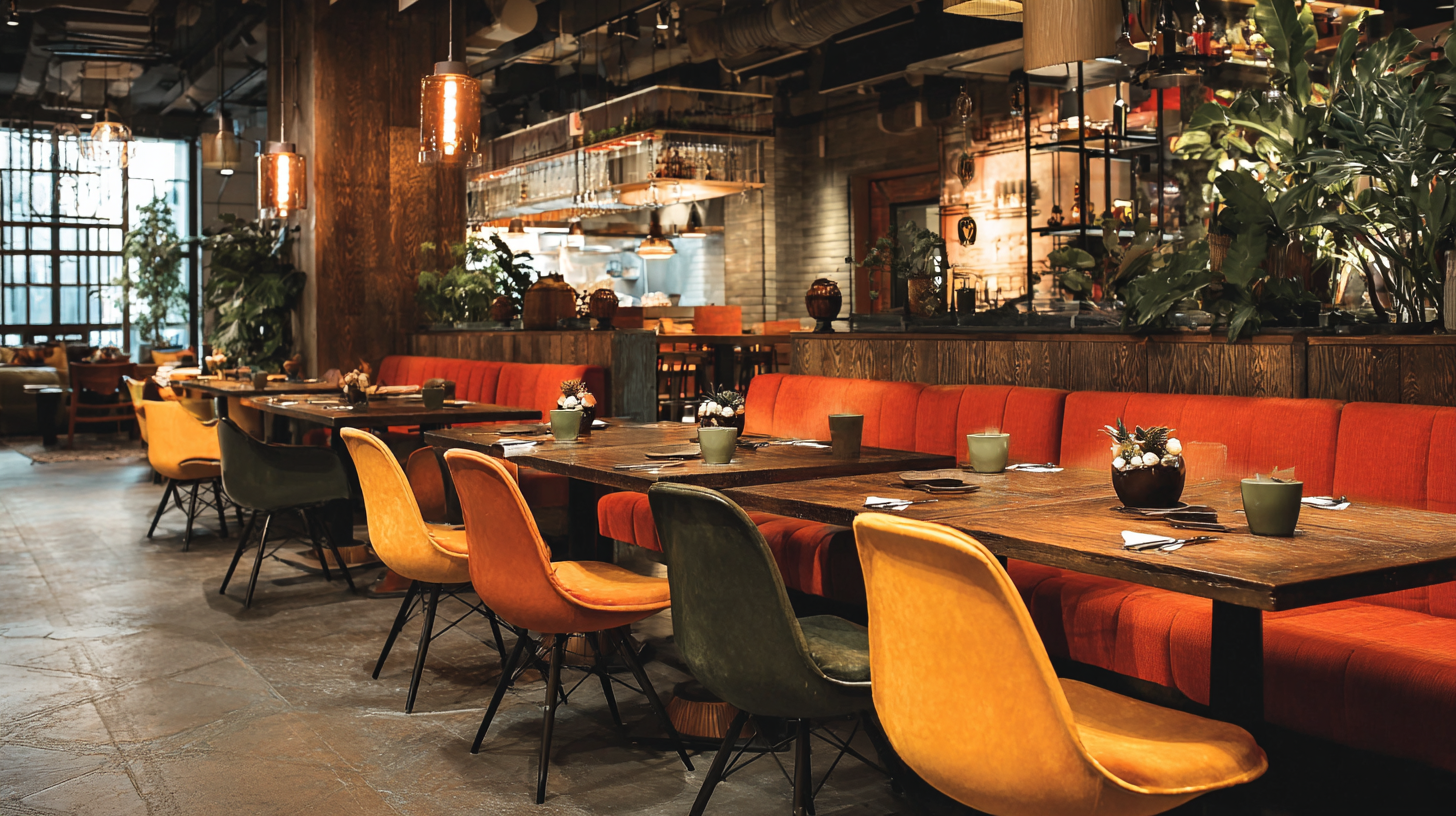
This introduction outlines the transformative furniture trends that are taking center stage this year, offering insights on how to elevate hospitality spaces through purposeful design and innovative solutions. This journey into contemporary furniture styles will reveal how strategic choices can make a lasting impression on guests and optimize operational efficiency, ultimately driving success in the competitive hospitality market.
In 2023, the hospitality sector is witnessing a transformative shift driven by innovative furniture design trends that cater to the evolving needs of consumers. A data-driven approach reveals that personalization in hotel and restaurant furniture is gaining traction, with 73% of industry leaders recognizing the necessity to create unique, tailored experiences for guests. This includes integrating versatile furniture that adapts to various settings, from intimate dining areas to dynamic collaborative spaces, reflecting the increasing demand for flexibility in design.
Furthermore, sustainability has emerged as a key factor influencing furniture choices, with 68% of consumers preferring environmentally friendly options. This growing expectation for sustainable practices is prompting hospitality businesses to invest in materials and designs that are not only aesthetically pleasing but also sustainable. Leveraging advanced analytics, businesses can identify trends in consumer preferences and align their furniture offerings accordingly, enabling them to enhance guest satisfaction and drive brand loyalty. As companies harness these insights, the integration of innovative design and sustainability will become essential in reshaping the future of the hospitality industry.
| Trend | Description | Impact on Experience | Sustainability Factor |
|---|---|---|---|
| Modular Furniture | Customizable pieces that can be rearranged for different uses and sizes. | Enhances versatility and maximizes space utilization. | High - Use of recyclable materials. |
| Biophilic Design | Incorporating natural elements into furniture design, such as wood and plant motifs. | Promotes relaxation and well-being among guests. | Medium - Sourcing of sustainable wood. |
| Tech-Integrated Furniture | Furniture that includes integrated technology such as charging ports and smart devices. | Enhances convenience and modernizes the guest experience. | Low - Dependent on electronic components. |
| Vintage and Retro Styles | Incorporation of vintage aesthetics in furniture pieces. | Creates a nostalgic atmosphere, appealing to various demographics. | Medium - Can utilize reclaimed materials. |
| Neutral Color Palettes | Use of soft, muted tones for furniture. | Promotes a calm and inviting environment. | High - Colors can minimize the need for paint. |
As the hospitality industry continues to evolve, integrating sustainable materials into hotel and restaurant furniture has emerged as a vital trend for 2023. This shift not only addresses growing environmental concerns but also enhances the overall guest experience. By choosing eco-friendly materials such as reclaimed wood, recycled metals, and organic textiles, establishments can reduce their carbon footprint while creating a stylish and inviting atmosphere. According to industry statistics, nearly 70% of consumers are willing to pay more for sustainable products, indicating a clear market demand for environmentally conscious design.
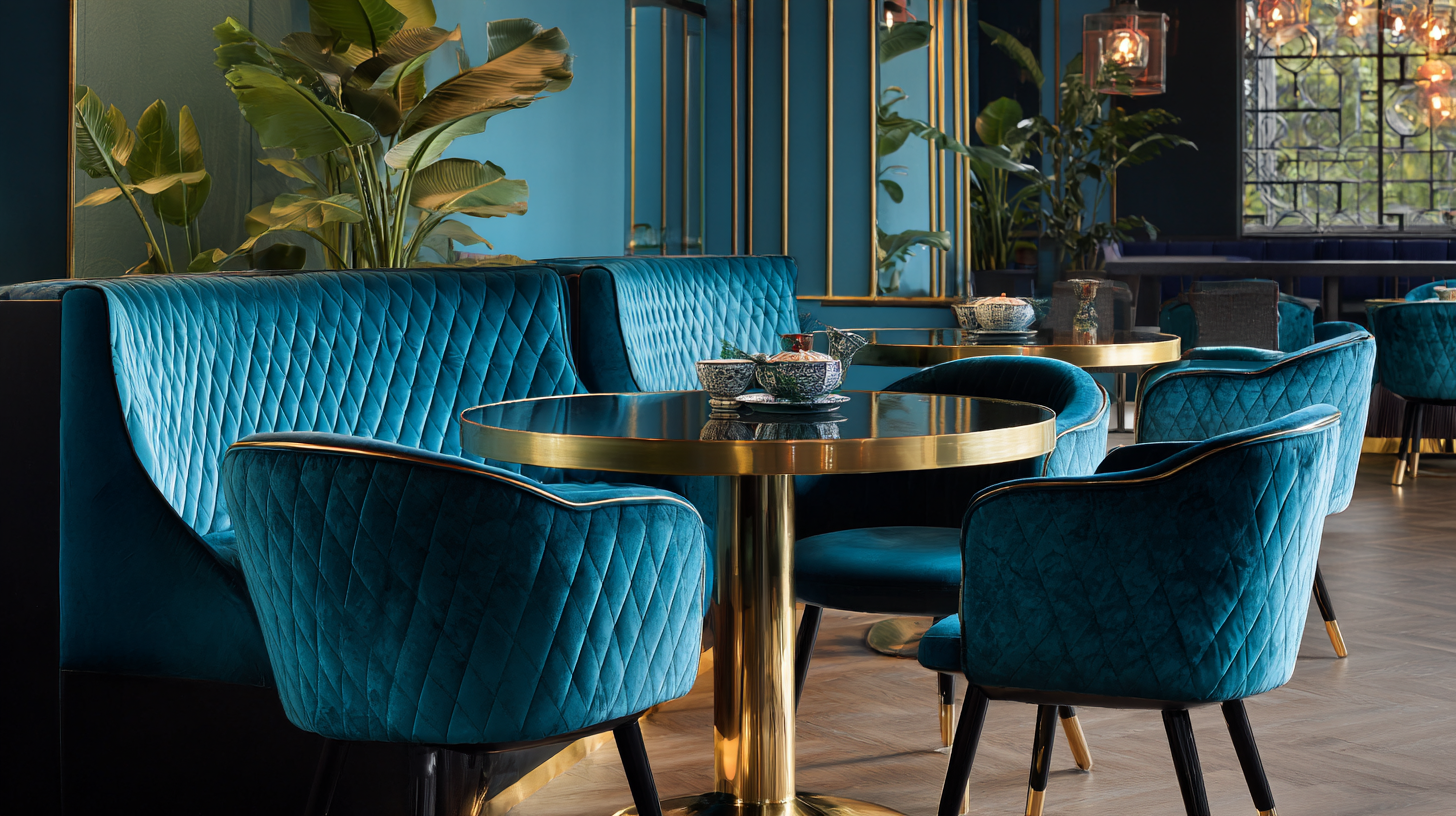 Furthermore, sustainable furniture options provide long-term benefits for hotels and restaurants. Reliable studies show that environmentally friendly furnishings often lead to lower maintenance costs and longer product lifespans. This cost efficiency, combined with the positive perception associated with sustainability, allows hospitality businesses to differentiate themselves in a competitive market. Emphasizing the use of sustainable materials not only attracts environmentally conscious consumers but also fosters a brand image rooted in responsibility and innovation, ultimately enhancing loyalty and repeat business.
Furthermore, sustainable furniture options provide long-term benefits for hotels and restaurants. Reliable studies show that environmentally friendly furnishings often lead to lower maintenance costs and longer product lifespans. This cost efficiency, combined with the positive perception associated with sustainability, allows hospitality businesses to differentiate themselves in a competitive market. Emphasizing the use of sustainable materials not only attracts environmentally conscious consumers but also fosters a brand image rooted in responsibility and innovation, ultimately enhancing loyalty and repeat business.
The hospitality industry is increasingly prioritizing space efficiency to enhance guest experiences while optimizing operational performance. According to a recent report by Statista, the global market for multi-functional furniture in hospitality settings is projected to grow by 7.5% annually, reflecting a significant shift towards versatility in design. This trend emphasizes the need for furniture that can serve multiple purposes, allowing hotels and restaurants to create adaptive environments that cater to diverse customer needs without compromising on style or comfort.
Innovative designs, such as foldable tables, modular sofas, and stackable chairs, enable establishments to transform their spaces quickly and effectively. A study by the National Restaurant Association indicates that 67% of restaurateurs are looking for furniture solutions that maximize seating capacity while maintaining aesthetic appeal. By investing in multi-functional pieces, hospitality venues can easily reconfigure layouts for events, peak dining hours, or intimate gatherings, ultimately resulting in enhanced guest satisfaction and revenue generation. As operators embrace these trends, the integration of innovative, space-efficient furniture will undoubtedly play a vital role in shaping the future of hospitality design.
In the competitive world of hospitality, creating an inviting atmosphere is crucial for enhancing guest experiences. One way to achieve this is through the strategic selection of furniture that takes color psychology into account. Colors can significantly influence emotions, perceptions, and behaviors, making it essential for hotels and restaurants to carefully consider their palette. For instance, warm colors like reds and oranges can create an energizing environment, perfect for bustling restaurants, while cooler shades like blues and greens evoke calmness and relaxation, ideal for hotel lobbies and lounges.
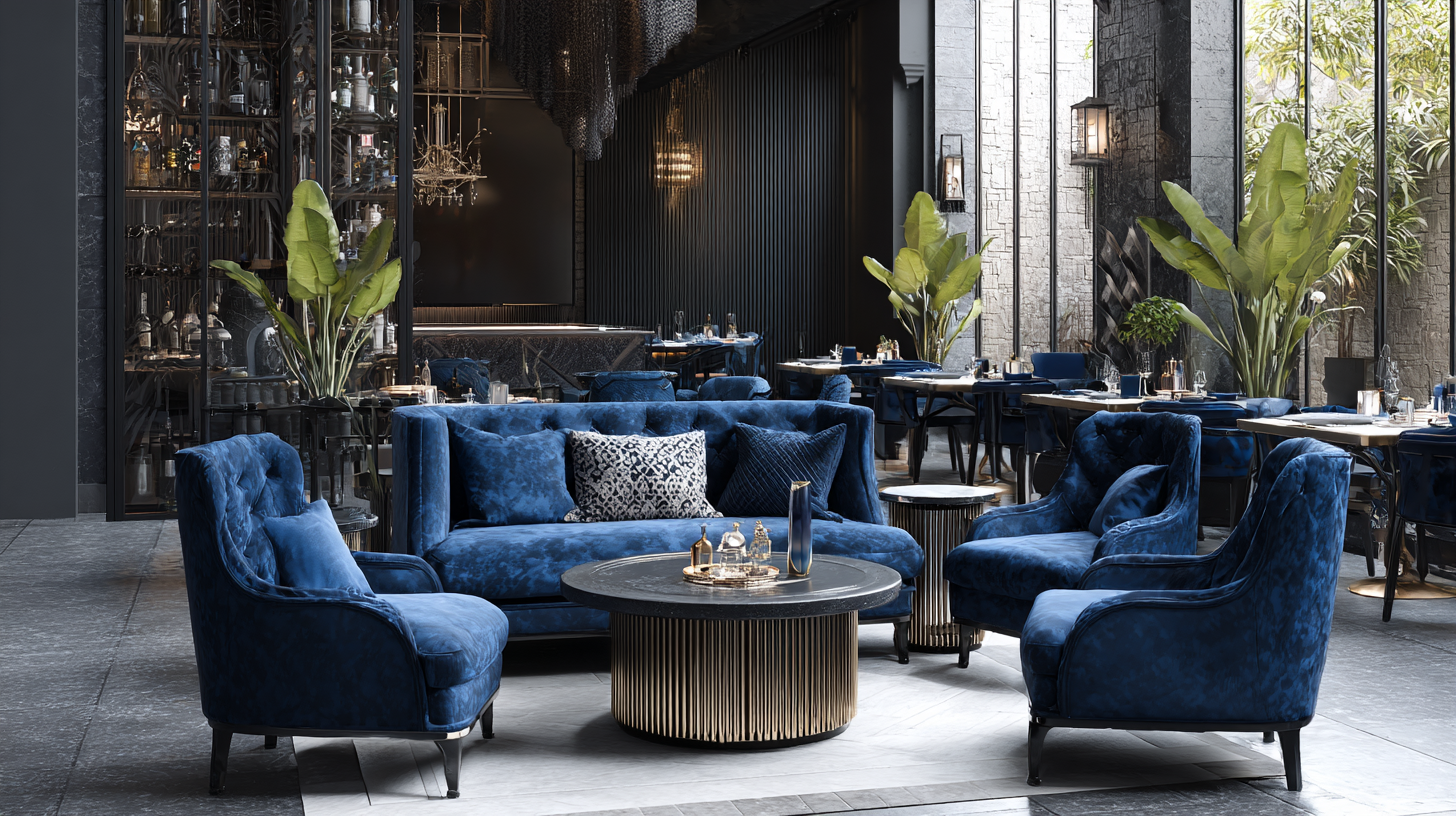
Moreover, trends in furniture design for 2023 emphasize the integration of vibrant hues that reflect local culture and heritage, allowing guests to feel a deeper connection to their surroundings. Sustainable materials in rich, earthy tones not only align with eco-conscious values but also contribute to a cozy ambiance. By thoughtfully selecting furniture that embodies specific colors, hospitality venues can craft unique narratives that resonate with their guests, ultimately resulting in a more memorable and enjoyable experience.
The demand for multifunctional and space-saving outdoor furniture has surged, reflecting a pivotal trend in the hospitality industry. As urbanization increases, particularly in crowded cities where outdoor spaces are often limited, hotels and restaurants are seeking innovative furniture solutions that maximize utility without compromising on aesthetic appeal. Compact designs that serve multiple purposes—such as seating that can convert into storage or tables that can expand for larger gatherings—are becoming essential in enhancing guest experiences in smaller areas.
Technological advancements further elevate the functionality of hospitality furniture. Smart furniture solutions, integrated with technology, allow for customizable seating arrangements and dynamic outdoor spaces that can adapt to the needs of different guest groups throughout the day. This trend not only enhances comfort but also promotes a seamless indoor-outdoor flow, allowing guests to enjoy their surroundings fully. As the outdoor furniture market is projected to experience significant growth, the emphasis on these innovative designs will be critical for establishments looking to stand out in a competitive landscape.
This chart illustrates the emerging trends in hotel and restaurant furniture for 2023, focusing on the adoption of technology, sustainability, and guest comfort.
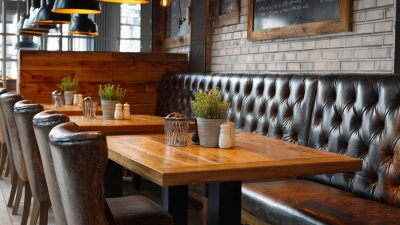
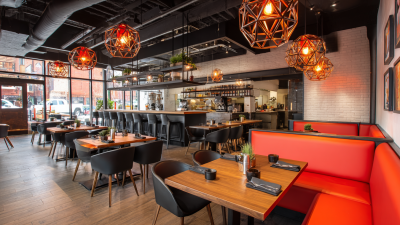
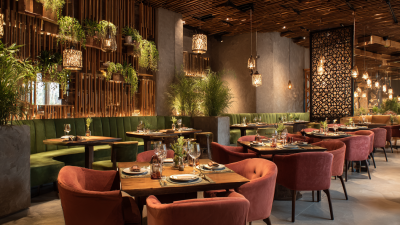
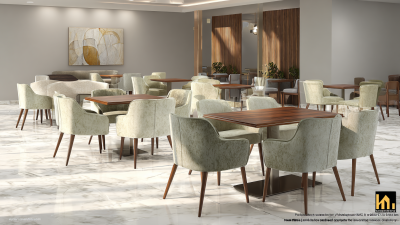
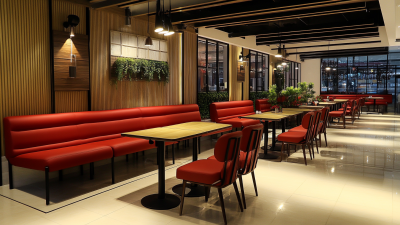

©2024 Pine Vista LLC, DBA Design Manufacturing Group. All Rights Reserved.
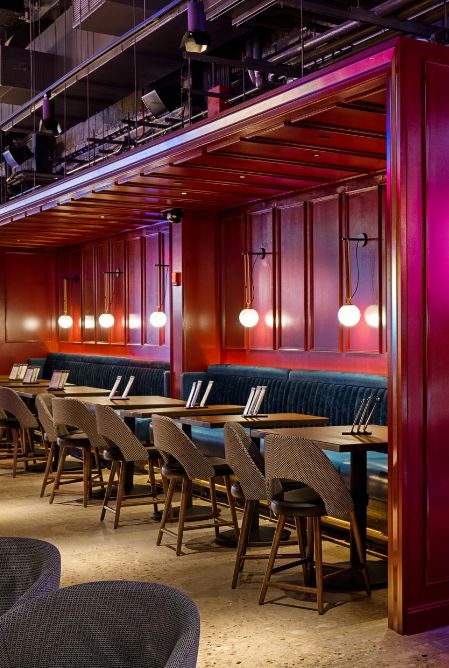


©2024 Pine Vista LLC, DBA Design Manufacturing Group. All Rights Reserved.
